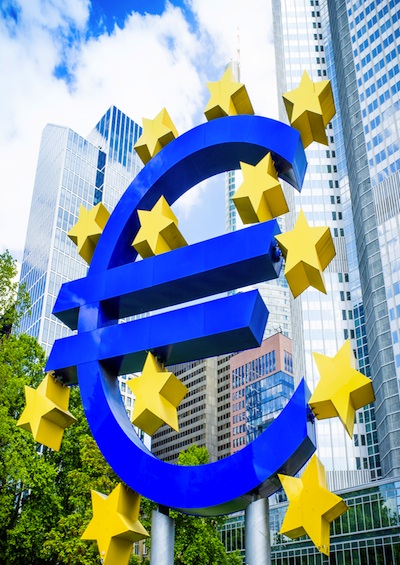Mr. Draghi, Hands Off the Inflation Button!
The European Central Bank needs to realize the monetary policy bucket is now empty.
January 6, 2015

The European Central Bank is a good institution and Mario Draghi is a good president. But one of his often repeated statements keeps making me cringe — when Draghi says inflation is too low and he will do anything make it go up again.
A central banker determined to boost the devaluation of money? Sounds very unusual, at least to German ears. Central banks are meant to keep the value of money in an economy stable. This is to ensure that the price mechanism of the market economy is functioning properly.
The overarching goal is to control the allocation of production factors and prevent undesirable distributional effects. The ECB, just like the Bundesbank in pre-euro times, has done the job quite well so far. Why change this now?
An economic contradiction
Legally, Mr. Draghi and the ECB are doing the right thing with their plans for higher inflation. The Maastricht Treaty commits the central bank to price stability – defined as an increase in the price level of “close to but below 2%”.
By this standard, it is clearly not enough if prices are rising by only 0.3%. This means the ECB has missed its target and must do everything possible to get the prices moving upwards again. But from an economic perspective, this makes no sense at all:
1.The economy does not benefit from a faster price increase. If this happens, consumers would lose purchasing power. The already low interest rates on savings would be pushed down even further. This would also distort the price signals for companies.
It is only the debtors in any economy who will be better off with higher inflation – to the detriment of creditors. This cannot be economically desirable. The central bank only needs to take countermeasures if prices fall to an extent that would threaten to take the entire economy down with them.
That would be the case if consumers delay their purchases, hoping to get a better price later. Aggregate consumption would fall and prices would drop further. But we are nowhere near this kind of scenario. Not even in Japan have we seen such a cumulative downward trend in the last 20 years.
2.The low rate of price increase is an integral and desired part of the ongoing consolidation and adjustment processes in the Eurozone. It is mainly the reform countries like Spain and Greece where prices are actually falling. This was forced by the policy measures to restore competitiveness.
By that logic, deflationary tendencies could be eliminated in Europe at the stroke of a pen – by calling off the reform programs. You need no ECB for that. Fortunately, this is not currently being considered.
Oil makes the world go round
3.The low rate of inflation is based to a large extent on the decline in oil prices. Oil, after all, is a key determinant of inflation. Household energy and fuels account for more than 10% of the basket of goods and services that is used to determine consumer price inflation.
All major price fluctuations in recent years were caused by the ups and downs in oil prices, not by domestic demand. And there is no way central banks can influence the oil price.
Also, the current drop in oil prices will not go on forever. Saudi Arabia has already indicated it has no interest in oil prices falling below 60 dollars per barrel – a level we are already approaching.
4.The statistical methods for measuring inflation are constantly improved. For a long time, the official figures were believed to overestimate actual inflation because they do not fully capture changes in product quality. Thus, if inflation was measured at 2%, it was thought to be zero in reality.
But this argument is losing much of its force as the hedonic pricing method has made inflation estimates quite accurate. Today, a 2% inflation rate really means that prices rise by close to 2%. Accordingly, the Maastricht target would essentially need to be reduced to zero.
At any rate, the ECB should not feel pressured to take any new measure to boost inflation. It has done everything it could feasibly do to keep inflation from dropping too sharply. Now the monetary policy bucket is empty.
Takeaways
The ECB has done everything to keep inflation from dropping too sharply. Now the monetary policy bucket is empty.
All major price fluctuations in recent years were caused by the ups and downs in oil prices.
The ECB should not feel pressured to take any new measure to boost inflation.
The monetary policy bucket in Europe is now empty.

